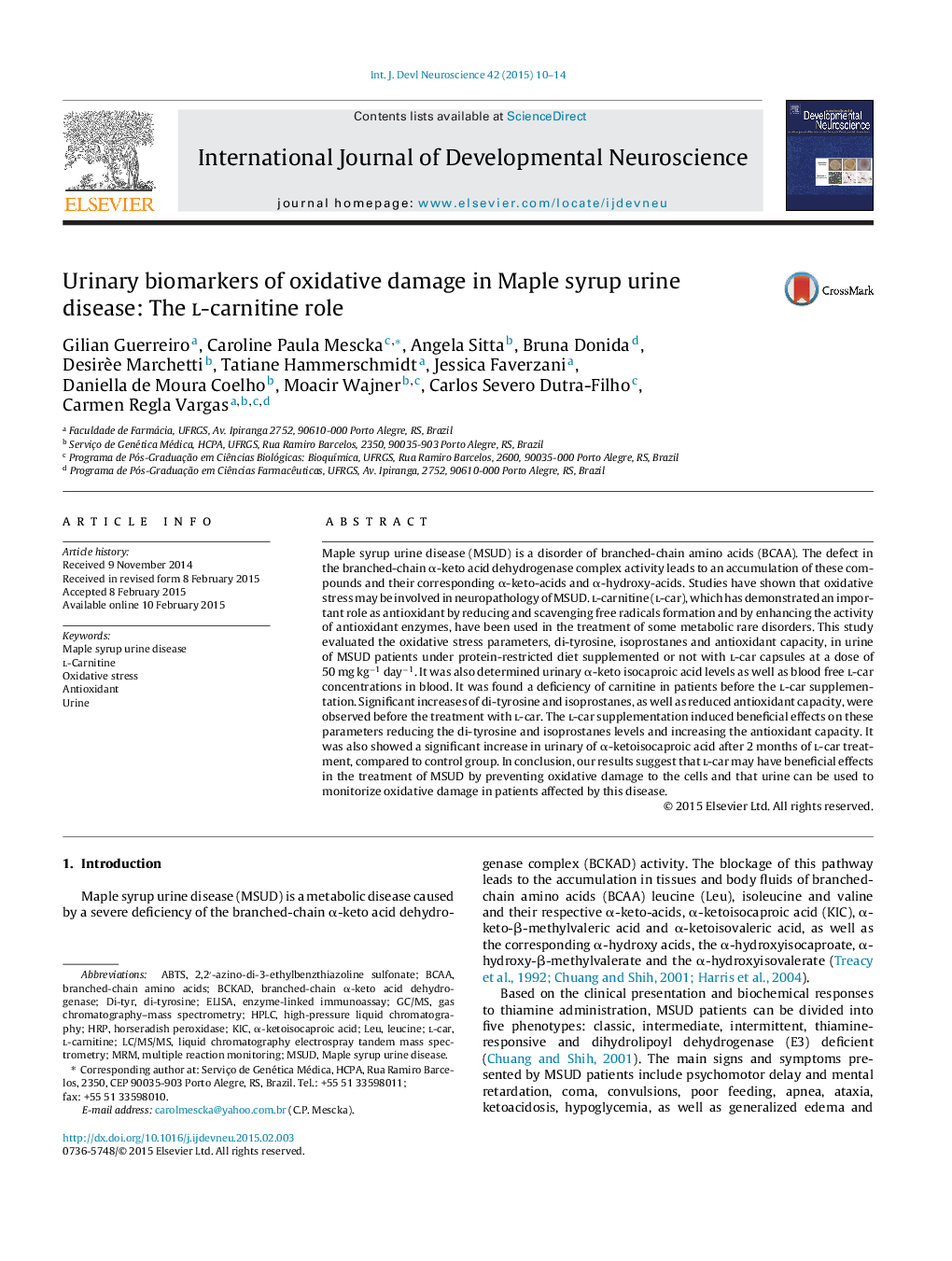| Article ID | Journal | Published Year | Pages | File Type |
|---|---|---|---|---|
| 2785871 | International Journal of Developmental Neuroscience | 2015 | 5 Pages |
•Maple syrup urine disease (MSUD) patients have l-carnitine (l-car) deficiency.•There is damage to proteins and lipids in urine and a deficient antioxidant capacity in MSUD patients.•l-car supplementation could be involved in the prevention of this oxidative damage.
Maple syrup urine disease (MSUD) is a disorder of branched-chain amino acids (BCAA). The defect in the branched-chain α-keto acid dehydrogenase complex activity leads to an accumulation of these compounds and their corresponding α-keto-acids and α-hydroxy-acids. Studies have shown that oxidative stress may be involved in neuropathology of MSUD. l-carnitine (l-car), which has demonstrated an important role as antioxidant by reducing and scavenging free radicals formation and by enhancing the activity of antioxidant enzymes, have been used in the treatment of some metabolic rare disorders. This study evaluated the oxidative stress parameters, di-tyrosine, isoprostanes and antioxidant capacity, in urine of MSUD patients under protein-restricted diet supplemented or not with l-car capsules at a dose of 50 mg kg−1 day−1. It was also determined urinary α-keto isocaproic acid levels as well as blood free l-car concentrations in blood. It was found a deficiency of carnitine in patients before the l-car supplementation. Significant increases of di-tyrosine and isoprostanes, as well as reduced antioxidant capacity, were observed before the treatment with l-car. The l-car supplementation induced beneficial effects on these parameters reducing the di-tyrosine and isoprostanes levels and increasing the antioxidant capacity. It was also showed a significant increase in urinary of α-ketoisocaproic acid after 2 months of l-car treatment, compared to control group. In conclusion, our results suggest that l-car may have beneficial effects in the treatment of MSUD by preventing oxidative damage to the cells and that urine can be used to monitorize oxidative damage in patients affected by this disease.
